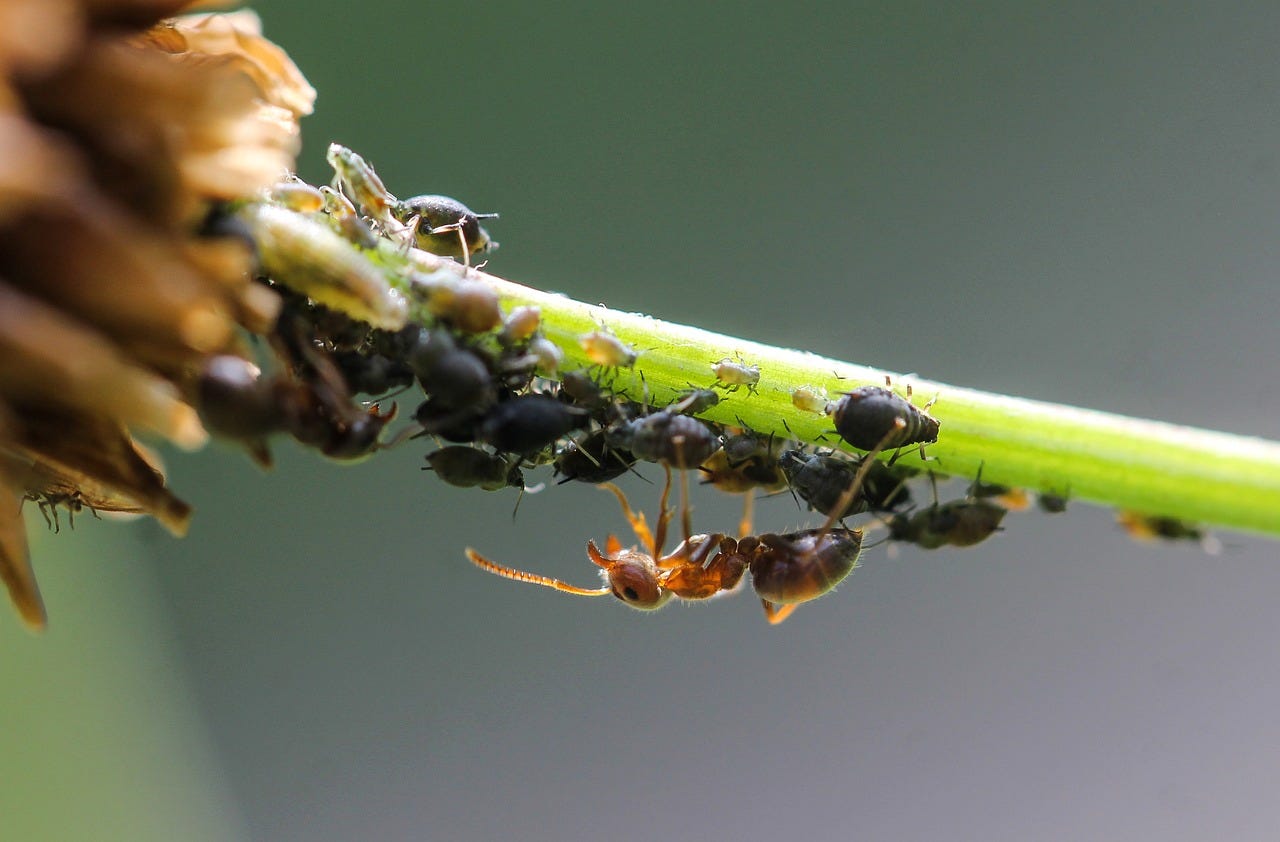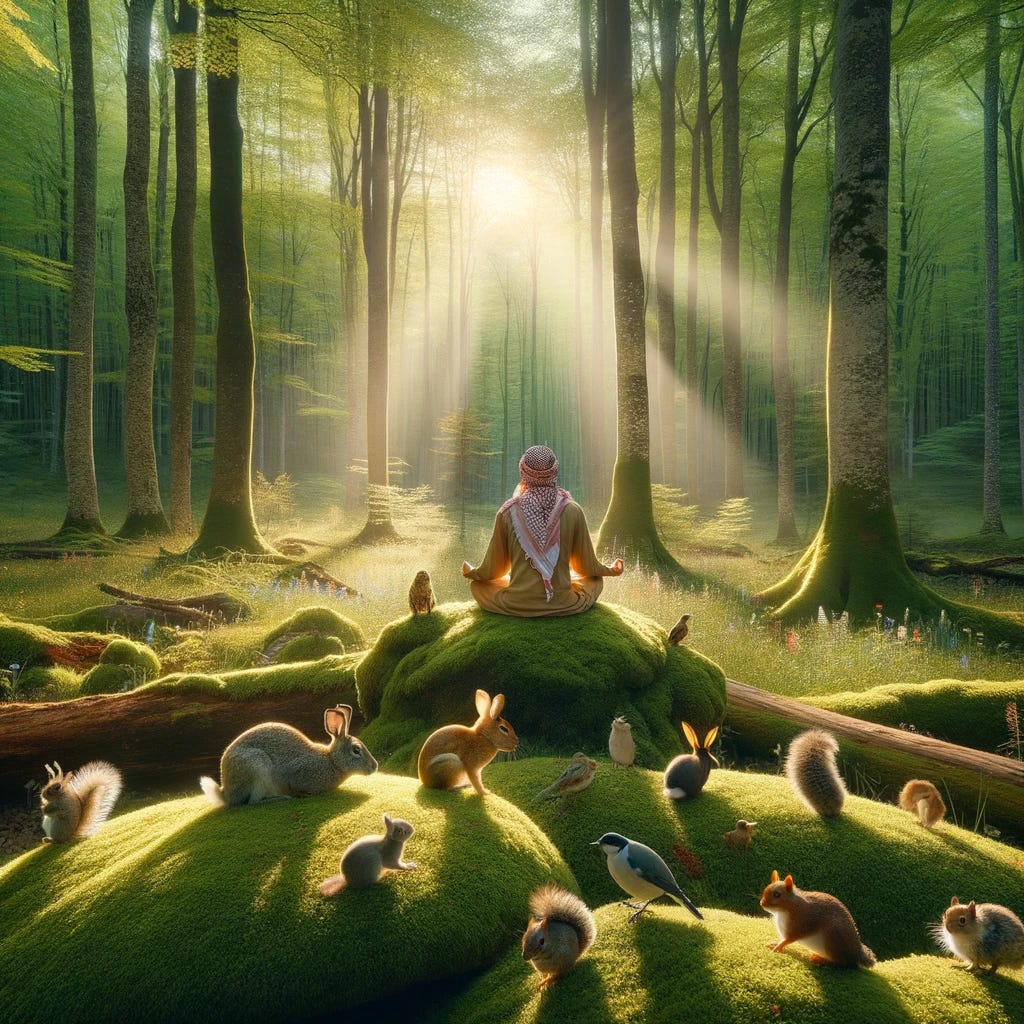Are Humans Natural or Supernatural?
The Battle for Our Place in Nature
Welcome to Polymathic Being, a place to explore counterintuitive insights across multiple domains. These essays take common topics and investigate them from different perspectives and disciplines to come up with unique insights and solutions.
Today's topic plays around with an interestingly complex problem about human existence. Often we are told that what humans are doing is not natural. Yet this quickly becomes an interesting problem because it implies we are somehow separate from nature and what we are doing differs dramatically from nature.
Introduction
A couple of months ago I was having a conversation with a friend and they made the comment that what humans were doing wasn’t ‘natural.’ For fuller context, we were talking about the terraforming, pollution, farming, and livestock processes that allow humans to exist in the world as we currently do.
I fully understand the concerns that were being made but I started running through some thought experiments as to what we mean by natural. Starting with the generally accepted assumption that humans evolved from primate ancestors and achieved our extant form approximately 200,00 years ago:
Humans are a feature of natural selection
We exist in nature along with everything else and have managed to expand from a regional ape species into one that has set foot on the moon
Everything we use and create comes from the natural world
It logically follows that outside of a supernatural implication, what humans do has to be natural.
I’ll quickly separate this from healthy, useful, balanced, or other terms that we’ll explore shortly, but these are value propositions that we place on our own interpretation. For the sake of this essay, I’d like to explore terraforming, pollution, farming, etc., and see if humans differ significantly from other natural creatures.
Pollution
This is probably the clearest example of what many would accept as an unnatural byproduct of human existence. Images of CO2, rivers on fire, oil spills, radioactive waste, and the Pacific Garbage Patch might all come to mind quickly for this topic.
Yet if we go way back in history there was a natural organism called cyanobacteria that caused The Great Oxidation Event. Prior to this event, Earth’s atmosphere was primarily carbon dioxide, methane, and water vapor. Enter cyanobacteria:
However, around 2.7 billion years ago, a peculiar group of microbes, known as cyanobacteria, evolved. Phylogenetic analyses based on 16S and 23s rRNA, genome reconstructions and fossil evidence have been used to understand the evolutionary characteristics of these early living organisms. These microbes possessed the remarkable ability to perform photosynthesis, (i.e., they could generate energy from sunlight). Cyanobacteria possessed the machinery to utilize water as a fuel source by oxidizing it. More significantly, the by-product of photosynthesis happened to be oxygen. - The Great Oxidation Event
The catch here is that most life on earth was anaerobic, meaning without oxygen, and therefore oxygen was a poison, wiping out over 99% of all life on earth in the process.
This mass extinction level event represents an epoch shift in Earth’s history and transitioned life from anaerobic to aerobic and is what we currently enjoy as the offspring of those very few bacteria that survived.
Cyanobacteria literally polluted their environment to the point that almost all life on Earth was eliminated. The climate also dramatically changed through global cooling and one of the first ice ages on Earth. That’s some serious and devastating, but natural pollution.
Terraforming
Beavers provide a great example of terraforming. They build massive dams across rivers creating a pond in which they build their lodges but also creating massive wetlands that destroy the native forests. This terraforming is essential to the beavers’ safety by literally providing a moat around their homes but also kills off the old trees allowing new saplings to emerge which become their favored food.
In fact, the woodlands and fields of America today look nothing like the swamps and marshlands that beavers created prior to major European trapping. Which landscape is better is out of the scope of this essay, but Beavers will naturally continue to dam and expand until something holds them in check
Farming / Livestock
I’m going to bucket these two together into one example: Ants.
These critters create incredible cities that have complex farming methods including plantlife life like fungi and animal life such as aphids. They also terraform their areas to a lesser scale than Beavers but they definitely exert a marvel of engineering in their building and their farming.

Conservation
What is notably missing from these examples is any idea of conservation. In my research, I could not find a single creature that would self-regulate and conserve its environment.
The cyanobacteria killed almost all life on earth potentially including itself!
The beavers are brought into check by predators, terrain, and human trapping.
Ants are held at bay through predators and inter-colony battle and conquest.
Other notable examples are the Elk in Yellowstone who were destroying the ecosystem until humans reintroduced wolves to trim the herds and change behaviors. Another example is the rabbit and fox which forms the basis for a classic case study on differential equations.
These populations balance each other and any changes create oscillations in the equilibrium until they balance back out. The point is that the Elk, Wolves, Rabbits, or Foxes do not individually change their behaviors to conserve their environment. They rely on each other to maintain a tensioned balance.
To illustrate the delicate nature of this balance, consider invasive species and their impact on environments where they are not native and lack a natural balancing agent.
Supernatural
To suggest that humans are not natural, or are somehow unique from the examples shared thus far, can only lead to one other option. Are we supernatural?
Those who are religious would likely immediately agree with this hypothesis. After all, in the Biblical tradition (Islam, Christianity, Judaism) Genesis clearly sets the tone that humans were created to have dominion over nature. The Hindi and Buddhist traditions also imply a more supernatural human existence and power, along with responsibility, for nature.
The idea of conservation also lends to this hypothesis since I can’t find evidence in nature of any creature taking the active measures humans do to maintain, regulate, and, especially, recover our environment from our own negative actions. Ironically, the idea of conservation and stewardship of our environment only seems to have roots in supernatural belief systems and humans are largely alone in nature taking these steps.
Summary
The goal of this essay isn’t to make the case one way or the other. In fact, I think it’s a bit of both:
I think we are fully natural and our actions are not out of alignment with the majority of how nature works where a stable equilibrium is only rarely achieved on the whole. We are always seeing major shifts in climate, flora, and fauna, not to mention the sporadic cataclysms that have befallen the planet.
Yet humans have managed to achieve a degree of super-natural in that we have a higher cognition allowing us both increased mastery of our environment as evidenced by our cities and infrastructure and also an increased mastery of our conservation through regulations, laws, and repair of our environment. There is no equivalent to humans on these two counts in nature implying we are super(above)-natural.
Balancing these two tensions is key to both understanding our place on this planet as well as our responsibility to the planet. We aren’t so unnatural as many would claim and we also have a super-natural ability to help maintain our environment unlike anything else on this planet.
At the root of this challenge is the hubris we have as humans about our role, uniqueness, or even impact which is often coupled with a myopic and fractured view of the science and history of our world. Without facing this, we’ll likely misunderstand our impacts and specifically miss amazing opportunities to make things better.
More reading on the topic can be found here:
Also, please join us on the Substack Notes where you can engage with the authors, find new topics, and see an online community that collaborates.
Enjoyed this post? Hit the button ❤️ above or below because it helps more people discover Substacks like this one and that’s a great thing. Also please share here or in your network to help us grow.
Polymathic Being is a reader-supported publication. To receive new posts and support my work, consider becoming a free or paid subscriber.
Further Reading from Authors I really appreciate
I highly recommend the following Substacks for their great content and complementary explorations of topics that Polymathic Being shares.
Goatfury Writes All-around great daily essays
Never Stop Learning Insightful Life Tips and Tricks
Cyborgs Writing Highly useful insights into using AI for writing
One Useful Thing Practical AI
Techno Sapien Great all-around tech topics






Yes, 100%: if you use the definition of nature that physicists use, nothing is therefore outside of nature. This includes all of our technology and everything we have ever done, or will ever do. We live in the universe, and we are subject to the same laws as everything else in the universe.
Some folks get hung up on the word, though, and mean "everything besides humans." It's a pretty common usage, probably a lot more common than the physics-oriented one I tend to prefer using. I'm not sure how useful of a distinction it is to divide "us" and "them", except insofar as (as you point out) that we are likely the only entities who consider our larger role with regard to the planet and cosmos.
I think 95% or more of these types of arguments arise because folks mean different things by words. It's possible to argue about the nature of consciousness, freedom, intelligence, and so on. Here, it's easy to argue about "nature" when you mean two different things by the word.
I think the real philosophical question to ask is: do we have an obligation to preserve the other species on earth if we are the only ones who understand that we're killing them? Does the curse of the Tree of Knowledge give us some kind of moral obligation that other (oblivious) species like cyanobacteria don't have?
Thorny questions.
Interesting stuff. I immediately thought of Maria Montessori’s lecture on nature vs supernature when I saw this post. First delivered in 1946: https://files.eric.ed.gov/fulltext/EJ1077012.pdf